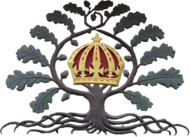Tory socialism
| Part of the Politics series on |
| Toryism |
|---|
 |
Tory socialism is the belief in reformist-minded activist government, at once appealing to political sentiments commonly associated with both conservatism and socialism.[citation needed] It was a term used by historians, particularly of the early Fabian Society, to describe the governing philosophy of the British Prime Minister Benjamin Disraeli.
The domestic policies of Richard Nixon were also called by many libertarians to be "Tory socialist"[1][2] and had much in common with the philosophy of "big government conservatism" espoused by many neo-conservatives. It was in keeping with this that David Gelernter wrote a long essay in The Weekly Standard extolling Disraeli as the founder of modern neoconservatism.[3] The phrase has also been used by Vernon Bogdanor to describe the thinking of Ferdinand Mount[4] and was used by Arnold Toynbee to describe the beliefs of Joseph Rayner Stephens and Richard Oastler.[5] The phrase was also used to describe both Stanley Baldwin and Harold Macmillan in the 1930s, and by Tony Judge in his biographical study of Robert Blatchford.
See also
References
- ^ Bill & Irving & Ken & Patrick, by Murray N. Rothbard, LewRockwell.com
- ^ Nixonian Socialism, Murray Rothbard, Von Mises Institute
- ^ Gelernter, David (7 February 2005). "The Inventor of Modern Conservatism". The Weekly Standard. Retrieved 21 April 2009.
- ^ Bogdanor, Vernon (28 September 2004). "Less equal than others". Telegraph.co.uk. Retrieved 21 April 2009.
- ^ Tyler, Colin (October 2012). "D. G. Ritchie on socialism, history and Locke". Journal of Political Ideologies. 17 (3). Taylor & Francis: 262. doi:10.1080/13569317.2012.716615. Retrieved 4 April 2014.
